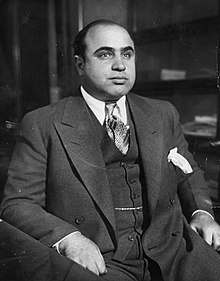User:Devthaker1910/Persuasive speech
| This is the sandbox page where you will draft your initial Wikipedia contribution.
If you're starting a new article, you can develop it here until it's ready to go live. If you're working on improvements to an existing article, copy only one section at a time of the article to this sandbox to work on, and be sure to use an edit summary linking to the article you copied from. Do not copy over the entire article. You can find additional instructions here. Remember to save your work regularly using the "Publish page" button. (It just means 'save'; it will still be in the sandbox.) You can add bold formatting to your additions to differentiate them from existing content. |
Persuasive Speech[edit]

Persuasive speech is a type of speech used to influence someone to accept a point of view through logical reasoning and explanation.[1] It is one of the three most daily used speeches (the other two types being informative and special occasion speeches).[2] Persuasive speech is used when presenters decide to convince their presentation or ideas to their listeners.[3] Their goal is to convince or persuade people to believe in a certain point of view.[3] Advertisement is one of the examples of persuasive speech.[4] The sellers have a goal to convince buyers to buys their product.[4] Persuasive speech is also used in debates and legal proceedings.[5]
Ethics of Persuasion[edit]
Persuasive speech can be considered unethical if a speech does not satisfy ethical considerations.[6]The purpose of the speech cannot be for "personal gain at the expense of others or personal gain without the knowledge of the audience".[5]
TARES Test[edit]
TARES test is a test proposed by Sherry Baker and David Martinson to define ethical persuasion.[7] According to this test, a persuasive speech must have all the following components to be considered ethical.[7]
- Truthfulness of the message
- Authenticity of the persuader
- Respect for the audience
- Equity of the persuasive appeal

Fitzpatrick & Gauthier[edit]
To determine how ethical a pitch is, Fitzpatrick & Gauthier came up with three questions that must be honestly answered.[7]
- What is the purpose of persuasion?
- Toward what choices and with what consequences for individual lives is persuasion being used?
- Does the persuasion affect the decision-making process of the audience?
The techniques of persuasive speech[edit]
The three techniques of persuasive speech are described below.
Ethos[edit]
The credibility of a speaker is known as Ethos. The speakers who are credible have better chances at persuading the listeners.[8] Speakers can develop these credibility by appearing trustworthy, and dynamic, using correct language and grammar, or by listing their personal experience.[9]
Pathos[edit]
The ability of a speaker to arise emotions among the listeners using ideas is known as Pathos.[8] Speakers can appeal to pathos by narrating a story from their personal experience, using figures of speech such as metaphor or personification, or using vocal voice varieties.[9]
Logos[edit]
The ability of a speaker to provide a logical explanation for every argument is known as logos.[8] Speakers can appeal to logos by supporting their argument with suitable arguments, presenting facts and data to support their information, or by establishing a conclusion using all the information used in the speech.[9]
The mix[edit]
A persuasive speech should consist of balanced portions of the Ethos, Pathos. Aristotle believed that a speech consisting all the three techniques is the most effective persuasive presentation. However, the speaker should also consider the audience and the occasion before determining the mix.[10]
See also[edit]
References[edit]
- ^ "PERSUASIVE | Definition of PERSUASIVE by Oxford Dictionary on Lexico.com also meaning of PERSUASIVE". Lexico Dictionaries | English. Retrieved 2021-04-19.
- ^ "Defining a Persuasive Speech". oer2go.org. Retrieved 2021-04-19.
- ^ a b McCarthy, Patsy; Hatcher, Caroline (1996). Speaking persuasively: The essential guide to giving dynamic presentations and speeches. Allen & Unwin. pp. 1–2.
- ^ a b publisher (2020-05-13). "Persuasive Advertising". Gourmet Ads. Retrieved 2021-04-19.
- ^ a b c "Introduction to Persuasive Speaking | Boundless Communications". courses.lumenlearning.com. Retrieved 2021-04-19.
- ^ McCarthy, Patsy; Hatcher, Caroline (1996). Speaking persuasively: The essential guide to giving dynamic presentations and speeches. Allen and Unwin. pp. 8–9.
- ^ a b c "Ethics of Persuasion: Public Speaking/Speech Communication". lumen.instructure.com. Retrieved 2021-04-19.
- ^ a b c McCarthy, Patsy; Hatcher, Caroline (1996). Speaking persuasively: The essential guide to giving dynamic presentations and speeches. Allen and Unwin. p. 28.
- ^ a b c "Persuasive Strategies". 2012books.lardbucket.org. Retrieved 2021-04-19.
- ^ McCarthy, Patsy; Hatcher, Caroline (1996). Speaking persuasively: The essential guide to giving dynamic presentations and speeches. Allen and Unwin. p. 29.
